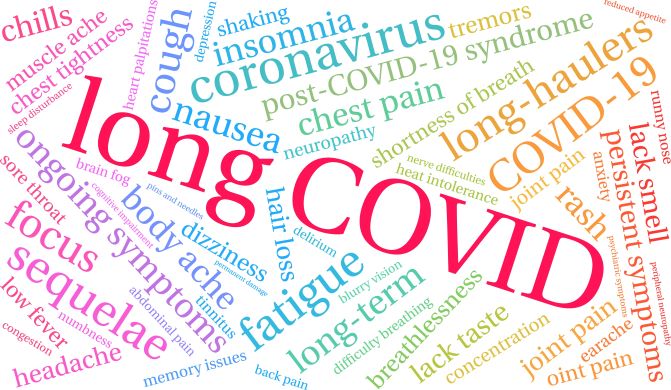By Heather Brantley, DNP, RN, director of clinical operations at The Portland Clinic

Q: What is “long COVID”?
Long COVID — also known as long-haul COVID, chronic COVID or post-COVID conditions — refers to the long-term health problems that some people experience after a COVID-19 infection.
The effects of long COVID can last weeks, months or potentially even years. Sometimes the symptoms go away and come back again. For most patients, symptoms improve slowly with time, but some people may experience lasting effects.
Q: Who is most at risk?
Anyone who’s been infected with COVID-19 can develop long COVID — even people who’ve had mild cases or no symptoms at all. However, the risk may be higher among certain groups, including:
- People who’ve had more severe COVID
- People with underlying health conditions
- People who are not vaccinated against COVID
Q: What does long COVID typically look like?
With a wide range of symptoms, long COVID can affect each person differently. Most commonly, according to the Centers for Disease Control and Prevention (CDC), people report:
General symptoms:
- Fatigue that interferes with daily life
- Symptoms that get worse after physical or mental effort
- Fever
Respiratory and heart symptoms:
- Difficulty breathing or shortness of breath
- Cough
- Chest pain
- Fast-beating heart (palpitations)
Neurological symptoms:
- Brain fog (difficulty thinking or concentrating)
- Changes in smell or taste
- Depression or anxiety
Other symptoms:
- Diarrhea
- Stomach pain
- Joint or muscle pain
- Rash
- Changes in menstrual cycles
New health conditions (especially after severe COVID):
- Effects on the heart, lungs, kidneys, skin and/or brain, which may increase the likelihood of developing
new health conditions such as:
- Diabetes
- Heart conditions
- Neurological conditions
Q: What should you do if you think you have long COVID?
If you develop new or persistent symptoms four or more weeks after a COVID-19 infection, make an appointment to see your health care provider.
Because long COVID is different for each person, you play a vital role in helping your providers understand your symptoms and how they affect your daily life. You can help by bringing the following with you to your appointment:
- A list of all your providers and medications
- Summaries of your health history and your COVID-19 experience —
e.g.:
- COVID onset and positive test dates
- Current symptoms and frequency
- How these symptoms affect your daily activities
- What helps or worsens symptoms
- Treatments and test results to date
Preparing for your appointment can make all the difference in getting the proper evaluation, diagnosis, and treatments to help manage your symptoms.
Q: How is long COVID treated?
Since there is no single cure that resolves all post-COVID conditions, treatment focuses on managing the many symptoms involved to help you feel and function at your best. Sometimes that takes a team approach, and within our multispecialty clinic, you’re in very good hands. Your primary care provider will work with you, and with other specialists as needed, to create a comprehensive treatment plan based on your specific symptoms and underlying conditions, as well as your personal preferences, living situation and health goals.
We don’t yet know how “long” long COVID may last, but researchers and providers are learning more about it every day. Your team at The Portland Clinic is here for you today, and for the long haul.


